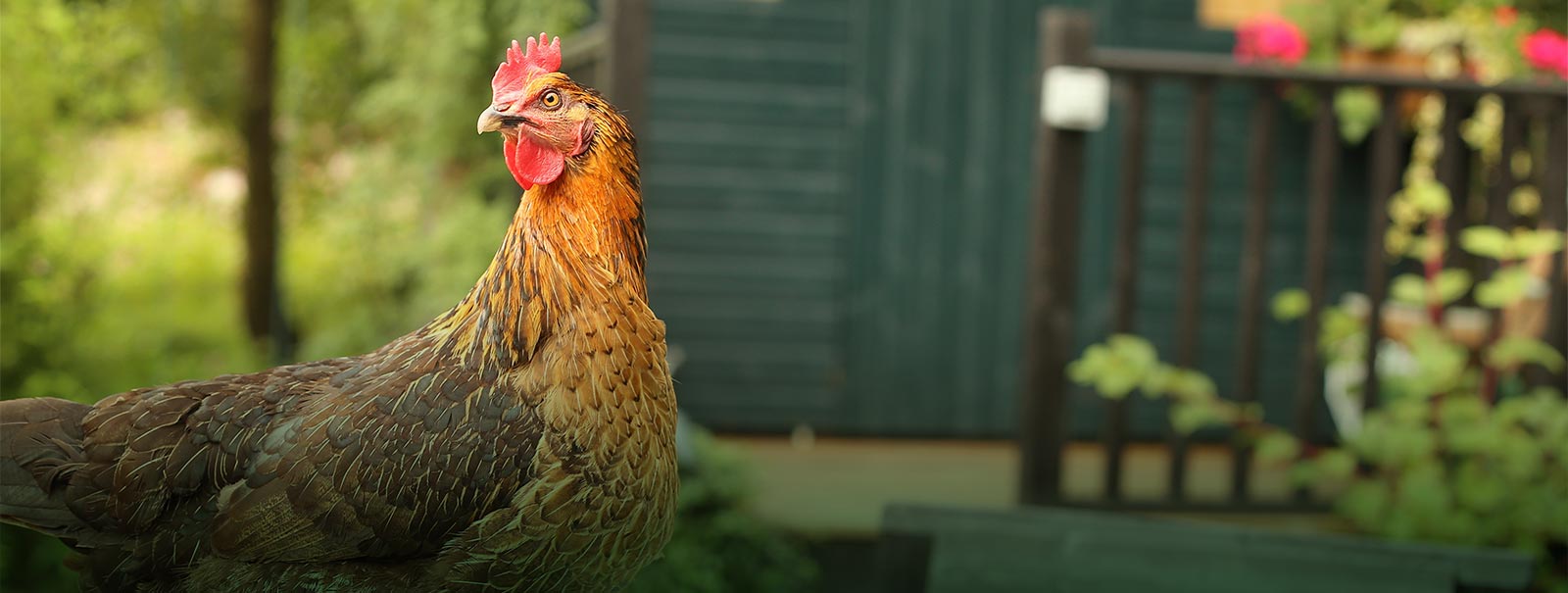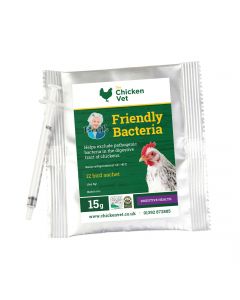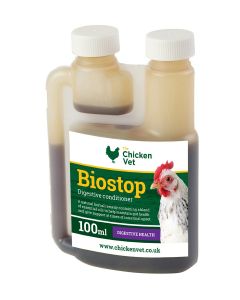
The advice hub Treatment and management of diarrhoea
Firstly, there are two important things to determine:
- Is the chicken otherwise well apart from the diarrhoea?
If the bird is looking dull or has any additional symptoms then it needs veterinary attention.
- Is there blood in the diarrhoea?
This could indicate the presence of coccidiosis and may well need veterinary intervention to treat it appropriately.
If the bird has diarrhoea but is otherwise fine and is eating and drinking normally then there is no need to panic and below are a number of things you can do to help:
- If your bird hasn’t been wormed in the past three months then either use a Chicken Vet Faeces Sample Kit to send in to the Chicken Vet Laboratory to look for worm eggs or worm your bird with Flubendazole, this should be done routinely every 4-6 months.
- Biostop is a product made from a plant extract containing tannins which helps bind the droppings so they are a firmer consistency. Biostop should be given to chickens with mild cases of runny and loose droppings. Biostop is very safe and can be given to the entire flock. It is useful to use following a course of antibiotics. Give in the bird’s drinking water daily for five days.
- After Biostop, give the chicken a dose of Beryl’s Friendly Bacteria to help repopulate the gut with friendly bacteria and to displace the harmful bacteria. This is a natural way and the most successful way to optimise gut health.
- Always ensure that your birds have fresh clean drinking water.
- Always ensure your birds have fresh quality feed, that has been stored correctly and is in date.
- Cut down on treats and stick to a compounded ration to reduce overgrowth of unfavourable bacteria.
- Remove wet bedding and sprinkle some Chicken Vet Dri Bed on the floor of the coop and top up with fresh bedding. This will keep your chickens comfortable and reduce the bedding becoming contaminated.
- Chicken Vet Poultry Multivitamins are great to use during recovery from diarrhoea as a boost. It is common for birds to lose some weight so these can help to resupply your birds with vitamins and minerals to aid a fast recovery.
Prevention
There are a number of simple steps you can take:
- Feed your birds a commercially formulated ration or either pellet or meal.
- Ensure feed is fresh, dry, in date and suitable for species and age of bird.
- Supply fresh drinking water in clean drinkers.
- Try to get rid of puddles in the range as these often contain lots of harmful bacteria and for some reason birds like to drink from them rather than their drinkers!
- Regularly clean and disinfect your poultry coop using a detergent followed by an approved disinfectant such as Chicken Vet Poultry Disinfectant or Interkokask.
- Worm your birds with Flubendazole every three to four months or when required following a sample check with a Chicken Vet Worm Test Kit.
- Give Beryl’s Friendly Bacteria after treatment or at times of stress to top up the good bacteria in your birds gut.
- Give your bird Digesti-Health daily in its feed, this contains Biomos to absorb fungal toxins, mannanoligosaccharides which bind to harmful bacteria to prevent them from passing into the blood stream through the gut wall.



